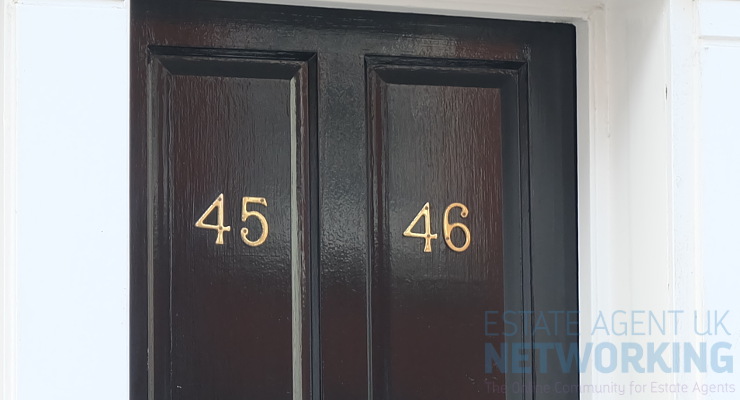WEEKLY NEWS ROUNDUP – 13/05/2022
A roundup of the week’s top property and proptech news stories in partnership with Proptech-X
What next for Rightmove as CEO quits?
After six years in the top job at Rightmove, present CEO Peter Brooks-Johnson is set to leave in February 2023. Who will fill his position and what are the big challenges on the horizon?
Everyone is aware that Rightmove is the darling of the stock exchange, it sees growth every year in revenue defying all the odds, and its level of profit remains constantly high, too. Last year it made an operational profit of £226 million on a turnover of £305 million. That’s a 74% margin. A truly remarkable set of figures.
But is the timing of Peter’s departure significant? Will it be like the Bank of England, when Mark Carney, who was the governor from 2013 to 2020, bailed out leaving Andrew Bailey to deal with what will be the worst economic position the UK has seen since the 1970s?

Interest rates continue to rise and the cost of living crisis deepens. Plus the residential housing sector in the UK is taking a pummelling together with other businesses in the UK. So, will early 2023, the point when the new CEO takes office, be the point that profits start to dip for Rightmove?
If fewer properties sell, fewer agents will operate, and those in play will certainly be looking keenly at their operating costs. Rightmove, which looks to increase its prices annually, may find it has to change its business model.
The bigger problem that I see for Rightmove is its relevance. By 2030, the general public, which runs most of its collective life in the digital space through smartphones, tablets and voice assistants, will see visiting a digital billboard, like Rightmove, as a little bit ‘old fashioned.’
The truth is we now live in an app-dominated world, and with three-quarters of the world being under the age of 35 years of age, logging into a portal and searching for happiness on a very old looking interface isn’t going to do it for people doing property.
Rightmove can publish the stats of the multi-millions who visit their site each month, yet stubbornly the amount of completed sales stays constant at around 1.25 million a year, clearly showing that people viewing pretty property pictures is not translating into a doubling of business for the estate agents who are paying for their stock to be listed.
It will be interesting to see who Rightmove appoints. Will it be an executive from Apple or Amazon? A person with a tech background, a proven digital pedigree, or will it be someone with a different background to keep the city happy?
Whoever it is, there has never been a better time to grow the business further. A failure to do so might consign the mighty Rightmove to oblivion as new agile upstarts look to swoop in and “eat their digital shorts”.
PRESS RELEASE: 5 Million Private Renters Live in Unhealthy Homes Reveals Recent Research by Yuno
Yuno is the proptech behind a market intelligence software that helps landlords and investors boost their portfolio
Recent research by Yuno, a proptech solution for landlords, has found over six hundred thousand landlords are breaking the rules when it comes to providing their tenant with a safe and healthy home, meaning that almost 5 million private renters in the UK live in poor conditions. At present, landlord licensing is a postcode lottery as it differs from council to council, moreover these rules change on average every 9 days, which is why Yuno are launching a new app to help landlords navigate and transform their buy-to-lets.
Yuno’s initiative comes in response to a recent report ‘The Cost of Poor Housing in England’ published by the Building Research Establishment (BRE) which found poor housing causes a health burden on the NHS costing £1.4billion a year. Consequently, Yuno is launching a free Mainland UK wide system that is free for landlords to identify opportunities, monitor changes, compliance and article 4 planning checks at a click of a button – all aimed at better educating and informing the industry about licensing and their responsibilities. Yuno freemium service provides all users free instant manual licensing checks, giving immediate answers, up-to-date information, and clarity; reducing the risk of hefty fines and sanctions. The free at the point of access app is paid for by local businesses sponsoring their local area to help tackle this issue and its ongoing societal costs – the first peer-to-peer support of its kind.
“Where you live has a huge influence on the path your life will take. We know a healthy home is the best foundation for our physical and mental health, but it impacts our work and social lives too.” says Paul Conway, founder of Yuno, “The BRE report findings are shocking, with the knock-on effects to the NHS estimated at £1.4bn a year. With a cost of living crisis upon us, the consequential costs will be far greater as we factor in sick days for business, rising levels of crime and additional pressures on the welfare system.”
“Understanding the licensing regime is a minefield – made worse by it changing from council to council, with changes coming in on average every 9 days. I suspect that most landlords won’t know that their homes aren’t conforming to licensing standards. Change is afoot, and the government is looking at proposals to transform the sector but this is going to take time. My argument to landlords is this: why wait? If fined, landlords face £30,000 plus in legal costs and a whole lot of stress for all parties, £50,000 for those in Scotland – the solutions to making it a healthier home will likely be much cheaper.”
What does The Queen’s Speech mean for property?
It may have been Prince Charles sitting in for his mother, but information about the future focus of Her Majesty’s government was still forthcoming.
Among a large number of bills and points of focus were the following:
The Social Housing Regulation Bill is a tenant-centric push to give those in the social housing vertical more rights and more leverage over their landlords. It is ironic that much of the impetus for this comes from the Grenfell inquiry, with the flats themselves being under the control of a local London council. So, in a way is the government looking to regulate itself?
Errant landlords will now be measured against a yet to be introduced scale of minimum performance, to attempt to bring rogue landlords in line. From my point of view, the government still has a very selective and poor understanding of the role and function of landlords.
There will be new initiatives where emergency maintenance can be ‘forced’ on landlords so that property adheres to acceptable criteria for rented accommodation, with the Regulator of Social Housing being given the whip hand to determine if intervention is required.
Section-21, the so-called no-fault eviction mechanism, is to repealed. If it comes to pass, this will mean that landlords can not just get their tenants out on a whim. Again, whilst this may be a populist piece of legislation that will warm the hearts of tenants, in reality, Section-21 was used to extricate problem tenants, rather than for any other reason.
The big problem for the government will be to put together new powers that allow landlords to deal with their property assets and tenancies once this legislation is repealed.
Levelling Up and Regeneration Bill – This part of the Queen’s speech was vague, there was talk of further monetising the planning opportunities, the need to re-draw the shape of the present Section -106 agreements, and the need to galvanise the local planning authorities.
Given that planning and new home building is central to any government’s policy, it is strange that there was not more detail on this point. But with only two years before the next election, the reality is that Gove will be halfway through all of this before he parachutes into another position, or there is a switch of party running the country.
Leasehold Reforms – This contentious area of property has been lurking for some years now. The government is looking to stop the abuse around leases being applied to new homes (not leasehold flats) in line with the problems that occurred when buyers having moved into properties found they were subject to large upticks under the terms of leases provided by the new home developers.
There was also mention of commonhold in the speech, again showing that we are slowly moving forward on this front too.
Gove will have his hands full for the next two years…
Though I have not had time to go through the dozens of bills and their possible impact on the property sector, sometimes there are hidden gems, it would seem that Gove as Housing Secretary will be bogged down for the next two years trying to sort the planning problem for new homes, at both a national and local council level.
The Punch and Judy show with regard to landlords and tenants will continue, and the role that social housing has in the whole rental sector looks to be as big a mess as it has always been – lots of talk and very little positive traction.
What are the real Proptech trends?
A bit like a doctor at a cocktail party who is always asked advice on all things medical, I often get asked what are the big things happening in the proptech vertical. My answer is always the same, the biggest thing happening is the total digital transformation of all of real estate.
For me, the term proptech means something digitally powered that touches the property asset, in the plan, build, sale or lease and asset management categories. So that would encompass many fintech, contech, insuretech, legaltech plays too.
It amazes me that many see property technology companies as some strange phenomena that build out SaaS models in the real estate marketplace. The reality is that technology companies are building out solutions for every part of what humans do. Since cloud computing started to really scale up in 2005, the potential to solve and do anything has been with us.
All of this said, at a lower level, apps or some form of software that allows a user to perform a specific task will be the ongoing real trend of the real estate business model for the next half-decade. We are past the tipping point where only a fraction of the tech-savvy consumers used a smartphone to run their life, it’s now ubiquitous, and the pandemic has changed consumer behaviour, fast-forwarding it.
The real trends for budding founders out there who are looking at building their MVP or grappling with commercial ideation is to look at the user experience (UX) of their proposition, as adoption relies upon fast, brilliant and well-priced solutions.
The good news is that there are lots of people coding the future of real estate. As one pundit put it, “removing one piece of paper at a time”. Turning analogue legacy systems on their heads, cutting out processes that existed in the past…because thirty years ago there were not the digital hand tools of the present.
A lot of the really brilliant breakthroughs have come where often founders have scant idea of how things are traditionally done, and just wireframe their own idea. This agile approach built using the ever-evolving technology that exists means that many large, established corporations are being overtaken by SMEs that have only been around for a few years.
In a nutshell, by 2040, all of real estate will be digital. Mostly because the stale, pale and male decision-makers will be happy in their retirement and the new people in post will be digital natives from a more diverse background, just like their property consuming clients. Then add to this the ever pushing and needy demands of the consumer who very much live in a shared economy and want instant gratification, and customer UX.
The biggest trend is change. Just as change is blowing through all of our lives – the way we work, where we work, who we work for and what work looks like – this is all evolving too, again powered by digital advances.









